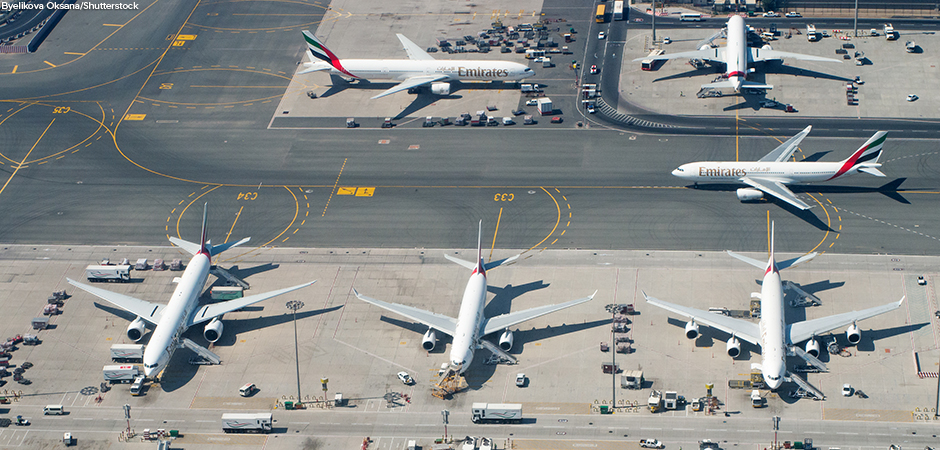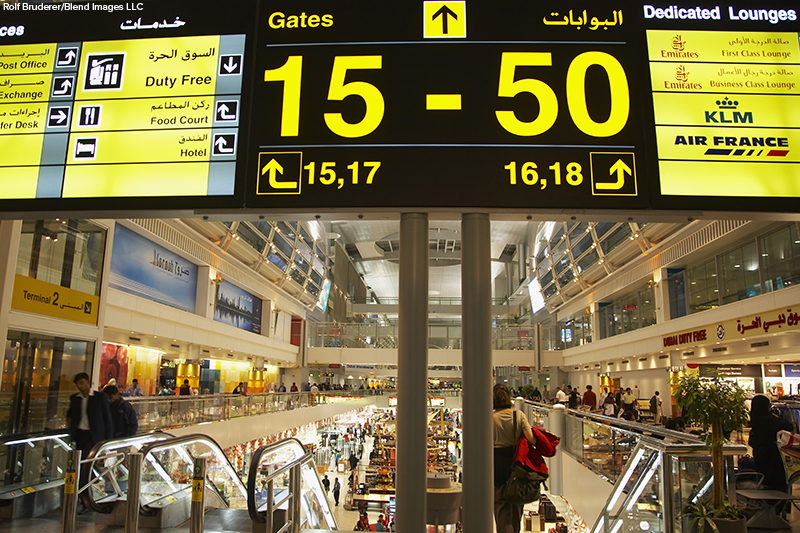
A growing number of passengers, especially international passengers, are keeping airports around the world busy. In fact, the total number of people who traveled by airplane in 2023 increased by 27 percent from 2022.

A Return to Pre-Pandemic Air Traffic
The international travel and tourism market is driving the aviation industry’s recovery from the COVID-19 pandemic. During the pandemic, air travel dropped by nearly two-thirds. Last year, the Dubai airport in the United Arab Emirates (UAE) has emerged as the top airport for international passengers because of the city’s popularity as a tourist destination.
Other international locations such as London’s Heathrow Airport and Tokyo’s Haneda Airport also experienced notable rises in the number of passengers. Haneda Airport moved from the 16th busiest to 5th busiest. The Dubai airport ranked 5th busiest in 2022. These two examples reflect a larger trend in aviation growth. Passenger counts for airports in emerging and developing economies in the Middle East and Asia Pacific regions are on the rise. India’s Indira Gandhi International Airport, which was the 10th busiest airport in 2023, saw its passenger numbers rise by 21 percent compared to the previous year. Several of India’s airlines are buying more aircraft, and the Indian government is investing in the country’s airports.
Official passenger counts for airports in 2023 show that Atlanta, Georgia’s Hartsfield-Jackson International Airport continues its reign as the number one busiest airport in the world.
Top Five Busiest Airports for Yearly Passenger Traffic (2023)
1. Hartsfield-Jackson Atlanta, Georgia (ATL): 104.7 million passengers
2. Dubai, United Arab Emirates (DXB): 87 million passengers
3. Dallas/Fort Worth, Texas (DFW): 81.8 million passengers
4. London Heathrow, United Kingdom (LHR): 79.2 million passengers
5. Tokyo Haneda, Japan (HND): 78.7 million passengers
Airline Industry Challenges
However, the aviation industry is experiencing some challenges with this surge in airline travel. Supply chain problems are leading to manufacturing delays for many aircraft makers. This means many airline companies are facing a shortage of available aircraft. Despite these challenges, the aviation industry remains optimistic about its growth. The danger associated with COVID-19 continues to decline, resulting in more people flying. Even so, the COVID-19 pandemic highlights the importance of the industry being prepared. Air carriers and airports continue to ensure they are ready for future disruptions that could occur on the same scale as the pandemic. Passenger health and safety remain a core focus for the industry.
